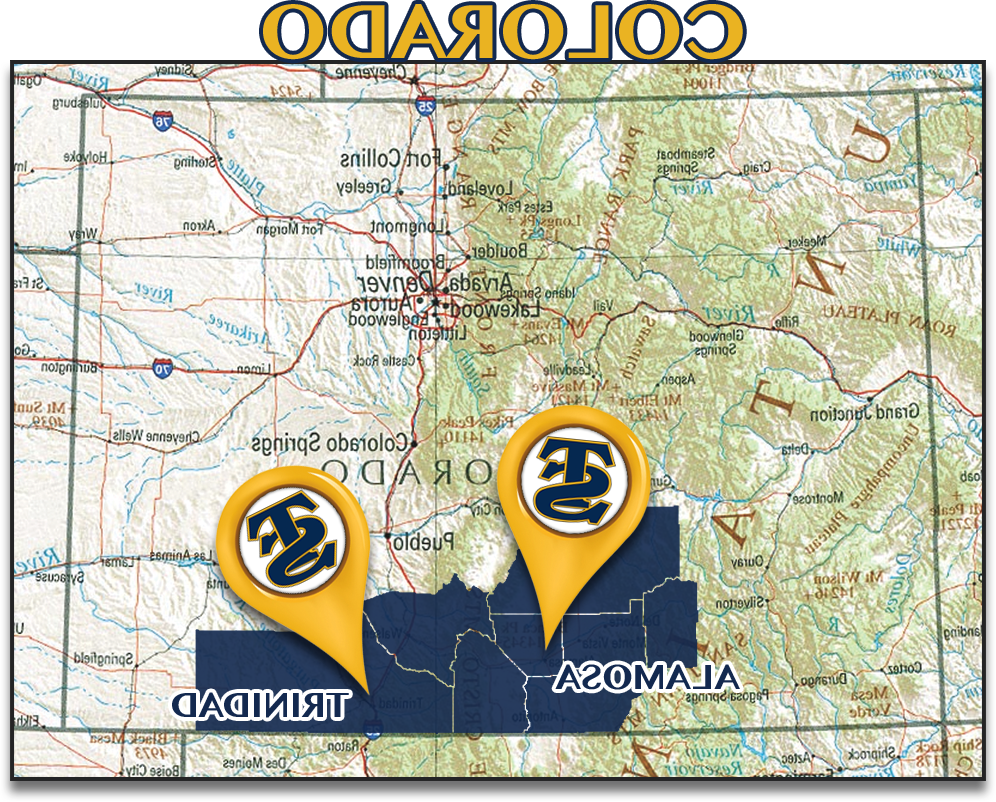Copyright Information
Copyright Information
Article 1, Section 8, of the United States Constitution states, The Congress shall have Power … To promote the Progress of Science and useful Arts, by securing for limited Tımes to Authors and Inventors the exclusive Right to their respective Writings and Discoveries.
Title 17 of the United States Code states that copyright protection exists in any original work of authorship fixed in any tangible medium of expression. Works of authorship include literary works, musical works (including any accompanying words), dramatic works (including any accompanying music), pantomimes and choreographic works, pictorial, graphic, and sculptural works, motion pictures and other audiovisual works, sound recordings, and architectural works. With limited exceptions, known as Fair Use (see 17 USC 107 and 108), copyright protection provides exclusive rights to the owner of the copyrighted work.
Trinidad State College is a state system community college governed by the State Board
for Community Colleges and Occupational Education. Board Policy’s 3-125 and 3-90 outline
the college procedures and guidelines
http://www.cccs.edu/bp-3-90-copyrights-and-patents/
http://www.cccs.edu/bp-3-125-electronic-communication-policy/
Summary of Civil and Criminal Penalties for Violation of Federal Copyright Laws
Copyright infringement is the act of exercising, without permission or legal authority,
one or more of the exclusive rights granted to the copyright owner under section 106
of the Copyright Act (Title 17 of the United States Code). These rights include the
right to copy, distribute, perform, or display a copyrighted work. In the file-sharing
context, downloading or uploading substantial parts of a copyrighted work without
authority constitutes an infringement.
Penalties for copyright infringement include civil and criminal penalties. In general, anyone found liable for civil copyright infringement may be ordered to pay either actual damages or "statutory" damages affixed at not less than $750 and not more than $30,000 per work infringed. For "willful" infringement, a court may award up to $150,000 per work infringed. A court can, in its discretion, also assess costs and attorneys' fees. For details, see Title 17, United States Code, Sections 504, 505.
Willful copyright infringement can also result in criminal penalties, including imprisonment of up to five years and fines of up to $250,000 per offense.
For more information, please see the Web site of the U.S. Copyright Office at www.copyright.gov, especially their FAQ's at www.copyright.gov/help/faq.
Consequences of Misuse
In addition to being in violation of U.S. law, copyright infringement is also in violation
of college policy. Individuals who infringe copyrighted materials on Trinidad State
College computers or networks are subject to disciplinary action as specified within
the Trinidad State College Student Handbook, Electronic Communication Policy and outlined
in the Student Code of Conduct. At a minimum, upon receipt of a copyright infringement
notification access to the infringing materials will be blocked until such time as
the situation has been resolved as per the Student Conduct process.
Legal Alternatives
For legal alternatives to illegal downloading, please see http://www.educause.edu/legalcontent.
Notification of Copyright Infringement
To report suspected electronic copyright infringement originating at Trinidad State
College, notify the designated agent as per the Digital Millennium Copyright Act (DMCA),
Public Law 105-304:
Security and Information Policy Officer, Trinidad State College IT Department:
Email:
Support.Desk@bongobaystudios.com
U.S. Mail:
6008 Prospect, Trinidad, CO 810082
College Plan to Address Copyright Infringement
In order to comply with federal laws and regulations such as the Higher Education
Opportunity Act, Trinidad State College employs technology-based deterrents including:
bandwidth monitoring to identify the largest bandwidth users, log correlation techniques
to match the reported IP address to a likely user, and vigorous enforcement of infringement
notifications.
The Student Services Office also educates the Trojan community regarding copyright laws through web-based materials including the Student Handbook.
Trinidad State College periodically reviews the effectiveness of its plan to combat copyright infringement through discussions with the Information Technology Director, Colorado Community College System and the Office of the Vice President of Student Services. Changes to the plan will be made to address any identified issues.

